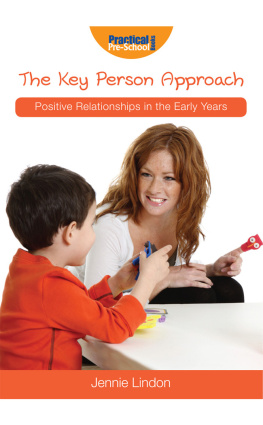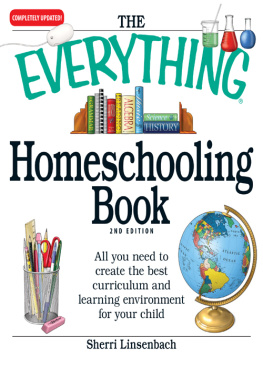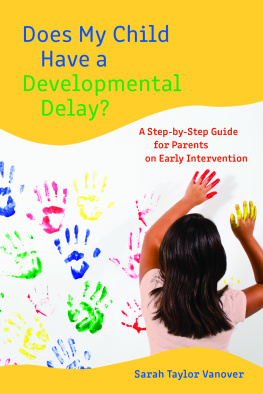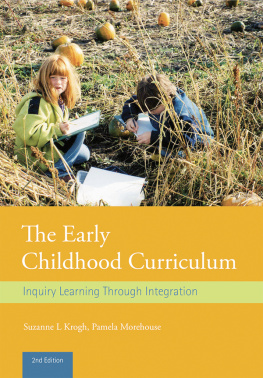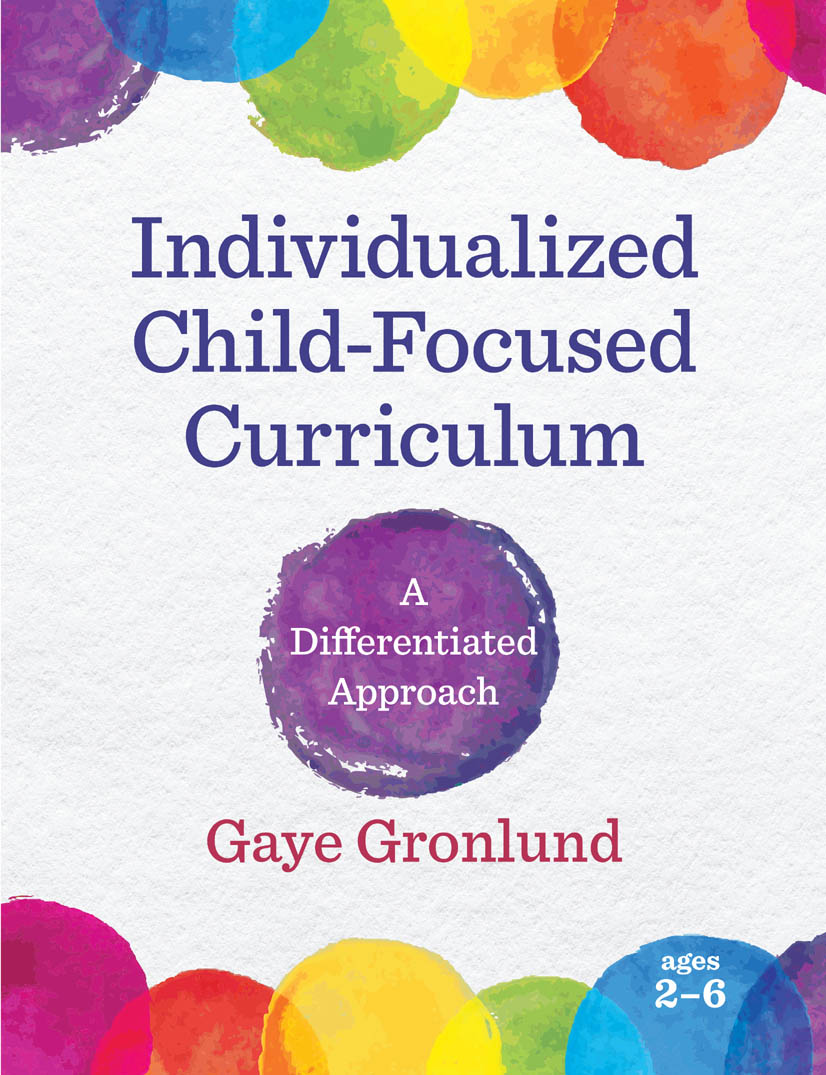
Published by Redleaf Press
10 Yorkton Court
St. Paul, MN 55117
www.redleafpress.org
2016 by Gaye Gronlund
All rights reserved. Unless otherwise noted on a specific page, no portion of this publication may be reproduced or transmitted in any form or by any means, electronic or mechanical, including photocopying, recording, or capturing on any information storage and retrieval system, without permission in writing from the publisher, except by a reviewer, who may quote brief passages in a critical article or review to be printed in a magazine or newspaper, or electronically transmitted on radio, television, or the Internet.
First edition 2016
Cover design by Erin Kirk New
Interior design by Erin Kirk New
Typeset in Sentinel and Cinta
Library of Congress Cataloging-in-Publication Data
Names: Gronlund, Gaye, 1952
Title: Individualized child-focused curriculum: a differentiated approach / Gaye Gronlund.
Description: St. Paul, MN: Redleaf Press, 2016. | Includes bibliographical references and index.
Identifiers: LCCN 2015037992
ISBN 9781605544502 (ebook)
Subjects: LCSH: Individualized instruction. | Individualized education programs. | Early childhood education.
Classification: LCC LB1031 .G756 2016 | DDC 371.39/4dc23
LC record available at http://lccn.loc.gov/2015037992
Table of Contents
Guide
To all of the teachers with whom I come in contact through my webinars, keynotes, workshops, and ongoing consulting: Your delight in children and your dedication truly inspire me!
Contents
Heartfelt thanks to:
Mary Beth Hilborn and Gail Holtz at Hawken School for giving me the opportunity to work with coaches and teachers exploring the process of individualizing curriculum.
All of the coaches and teachers who contributed to this book.
The families of the children with whom the coaches and teachers worked.
The staff at Redleaf Press for all you have done to support my publications over the years.
Jalynn is full of energy that is so contagious. Every day she asks if she can jump on the trampoline and stays there jumping for at least ten minutes before getting off. She is a little jumping bean!
Thomas announced to me, I am really good at climbing walls and chasing down bad guys. He often takes on superhero roles, reciting lines and posing in character perfectly! He is a great Spider-Man and a foreboding Batman.
Hayley spends most of her time in the play kitchen and dress-up area making meals and setting up parties, then goes around the room inviting everyone. She is all-inclusive, truly a hostess with the mostest!
Dante is a not a talker, but more of a watcher. Yet he doesnt miss a thing. When someone is hurt or upset, he gets one of the teachers by the hand and leads her over to the crying child. Then he sits nearby watching as the child is comforted. When his friend is calm again, he smiles and pats him or her on the back gently.
Teachers of young children delight in the many differences among the children and are so fortunate to get to know each of their unique personalities. In my workshops with teachers, I often pose a question to the group: Is your job demanding? The answer is a strong Yes from everyone. Then I ask Is your job boring? And the answer is a resounding No!
I believe that is because, as early educators, we do not deal with each child in the same way. We are not factory workers placing the same widget into the same hole over and over again throughout the day. Instead, each and every day, we are dealing with little human beings who come to us with many unique traits. They each have their own
personalities,
strengths,
talents,
interests,
learning styles,
family backgrounds,
cultural influences, and
life experiences.
Trying to meet all of the childrens needs can be challenging. Yet as we do so, our work becomes even more interesting. We never have time to be bored, do we? Tired, yes. Drained, sometimes. But certainly not bored.
The Pressures of Accountability
In the twenty-first century, early childhood education is in the age of accountability. More and more research shows the benefits of early intervention and early education. Politicians and policy makers are recognizing the value of investing tax dollars in preschool education and family support. More and more states provide pre-K programs, and federal support systems are in development as well. And states are working to raise the quality of child care and early education through quality-rating systems that require programs to implement clearly defined best practices.
But this public attention brings pressures to be accountable, to show how the children are benefiting from the monies that pay for the teachers, buy the materials, heat the classrooms, and provide the meals. Different groups ask early educators for reports, data, and evidence to answer different questions.
Parents and family members ask: What is my child learning? How is he doing compared to other children of the same age? Will she be ready for kindergarten? How do I know if all I see is children playing at your program? What do you teach?
Funders and policy makers ask: Where is the data that shows the early childhood program is benefiting the children? What statistics do you have to show they are learning? How will you prove they are ready for kindergarten?
Directors and administrators ask: What curricular strategies are you using to ensure that children are learning? How are you assessing their progress? Where is your documentation that provides evidence of each childs capabilities? How are you preparing them for kindergarten?
And teachers ask: How am I supposed to do whats right for young children, as well as whats right for each individual, and still be accountable with data, reports, assessment information, and evidence? Can I still implement a play-based curriculum? Can I use observations as my assessment process, or do I have to begin testing children? What are the goals for each childs learning? How on earth do I do it all?
Remembering to Delight in Each Child One of the key elements in early childhood education has always been joy. Whether teachers work with infants, toddlers, or preschoolers, they find enjoyment in their work. They laugh with children at how silly it feels when a bubble pops on their nose. They smile when children proudly show them something they have accomplished or created. They respond tenderly to all-enveloping hugs. They cheer when a child tries something that had been unfamiliar and frightening to him. They listen with full, engaged attention as a child explains her thinking about the transformation of a caterpillar to a butterfly or where the sun goes at night.
I am deeply worried that early childhood educators are losing the joy in their work. They are so pressured to assess learning and justify curricular strategies that they are forgetting that their work should be filled with delight in who each child is and what each one can do. This book is my attempt to bring back the joy and delight in being a teacher in an early childhood program.
I think the way to do that is to individualize curriculum so that each child is successful in his own way. I recognize that this is not an easy task, but I truly believe it is an


